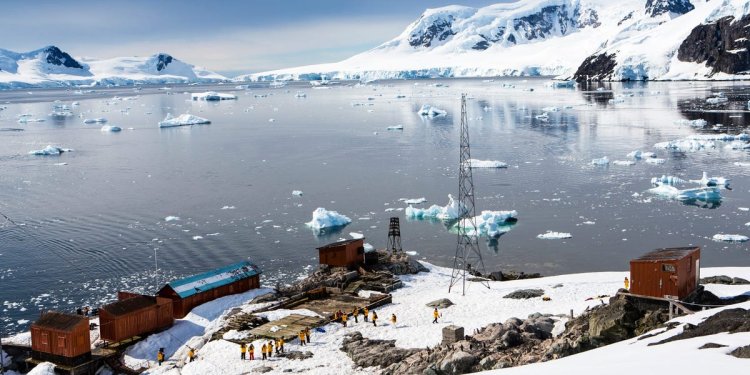Researchers in Antarctica developed a strange accent after being isolated for 6 months
The science provides a snapshot into how new accents develop in a group cut off from the world.

Manuel Romaris/Getty Images
- People cooped together in a station in Antarctica started speaking with a unique accent.
- Scientists tracked the change over a six-month mission by listening to recordings of 29 common words.
- Not only did the researchers develop a new accent, they also picked up Antarctica slang.
Living on the edges of the planets comes with an unexpected perk: you may pick up an exotic accent that's spoken only in Antarctica.
A study, first reported by Richard Gray at the BBC, found that over time Antarctic "winterers'" accents started shifting ever so slightly — a mishmash of the American, German, Icelandic, Scot, and Welsh accents being spoken at the station at the time.
The research provides a snapshot into how new accents are developed when communities grow in isolation, like when English speakers colonized new countries and developed new accents.
Researchers tracked the twang of 26 international researchers and support staff that spent six months in the British Antarctic Survey's Rothera Research Station in May 2018.
These have little access to the outside world, as satellite calls are costly, providing a perfect test lab for linguistic research.
Every few weeks, 11 winterers recorded a series of 29 common words like "food," "coffee," "hid," or "airflow," the BBC reported.
The recordings were analyzed by researchers at the Institute of Phonetics and Speech Processing, Ludwig-Maximilians-University of Munich.
The researcher found gentle changes to the accents, including a slightly different way of saying the sound "ou" in the words "flow" and "sew," as well as tweak to a few consonants.
"It was very subtle — you can't hear the changes," Jonathan Harrington, professor of phonetics and speech and an author of the study, told the BBC.
The Antarctica-dwellers also started picking up very peculiar slang like "fod plod" for litter picking — a play on the technical term "foreign object debris," per the BBC.
This Antarctic drawl is likely to be short-lived, however.
"For accents to develop to the point where they are noticeable, it really takes a generational change," Harrington told the BBC.
The research was published in the peer-reviewed Journal of the Acoustical Society of America in 2019.
What's Your Reaction?




















